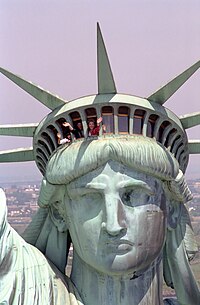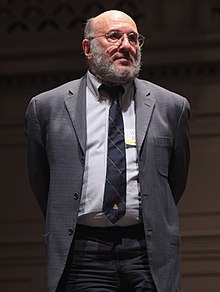Introduction
Libertarianism (from French: libertaire, itself from the Latin: libertas, lit. 'freedom') is a political philosophy that upholds liberty as a core value. Libertarians seek to maximize autonomy and political freedom, emphasizing equality before the law and civil rights to freedom of association, freedom of speech, freedom of thought and freedom of choice. Libertarians are often skeptical of or opposed to authority, state power, warfare, militarism and nationalism, but some libertarians diverge on the scope of their opposition to existing economic and political systems. Various schools of libertarian thought offer a range of views regarding the legitimate functions of state and private power. Different categorizations have been used to distinguish various forms of Libertarianism. Scholars distinguish libertarian views on the nature of property and capital, usually along left–right or socialist–capitalist lines. Libertarians of various schools were influenced by liberal ideas.
In the mid-19th century, libertarianism originated as a form of left-wing politics such as anti-authoritarian and anti-state socialists like anarchists, especially social anarchists, but more generally libertarian communists/Marxists and libertarian socialists. These libertarians sought to abolish capitalism and private ownership of the means of production, or else to restrict their purview or effects to usufruct property norms, in favor of common or cooperative ownership and management, viewing private property in the means of production as a barrier to freedom and liberty. While all libertarians support some level of individual rights, left-libertarians differ by supporting an egalitarian redistribution of natural resources. Left-libertarian ideologies include anarchist schools of thought, alongside many other anti-paternalist and New Left schools of thought centered around economic egalitarianism as well as geolibertarianism, green politics, market-oriented left-libertarianism and the Steiner–Vallentyne school. After the fall of the Soviet Union, libertarian socialism grew in popularity and influence as part of anti-war, anti-capitalist and anti- and alter-globalisation movements. (Full article...)
Selected article
Social anarchism, sometimes referred to as socialist anarchism, is a non-state form of socialism and is considered to be the branch of anarchism that sees individual freedom as being dependent upon mutual aid.
Social anarchist thought emphasizes community and social equality as complementary to autonomy and personal freedom. They also advocate the conversion of present-day private property into social property or the commons while retaining respect for personal property. The term is used to describe those who—contra individualist anarchism—place an emphasis on the communitarian and cooperative aspects of anarchist theory while also opposing authoritarian forms of communitarianism associated with groupthink and collective conformity, instead favouring a reconciliation between individuality and sociality.
Emerged in the late 19th century as a distinction from individualist anarchism, social anarchism is considered an umbrella term that includes—but not limited to—the post-capitalist economic models of anarcho-communism, collectivist anarchism and sometimes mutualism as well as the trade union approach of anarcho-syndicalism, the social struggle strategies of platformism and specifism and the environmental philosophy of social ecology.
The term "libertarianism" was coined and used as synonymous for anarchism and socialism, hence the terms "social anarchism" and "socialist anarchism" are often used interchangeably with libertarian socialism, left-libertarianism or left anarchism.
Selected quote
| “ | My idea of a perfect government is one guy who sits in a small room at a desk, and the only thing he's allowed to decide is who to nuke. The man is chosen based on some kind of IQ test, and maybe also a physical tournament, like a decathlon. And women are brought to him, maybe...when he desires them. | ” |
| — Ron Swanson (2009) Parks and Recreation (Season 1) |
Selected picture
 |
General images
Selected biography -
Related portals
Parent portals
Socio-political portals
Topics
Categories
Points of interest
| Points of interest related to Libertarianism on Wikipedia: History – Portal – Category – WikiProject – Alerts – Deletions – Assessment |
Associated Wikimedia
The following Wikimedia Foundation sister projects provide more on this subject:
-
Commons
Free media repository -
Wikibooks
Free textbooks and manuals -
Wikidata
Free knowledge base -
Wikinews
Free-content news -
Wikiquote
Collection of quotations -
Wikisource
Free-content library -
Wikiversity
Free learning tools -
Wiktionary
Dictionary and thesaurus
© MMXXIII Rich X Search. We shall prevail. All rights reserved. Rich X Search



































